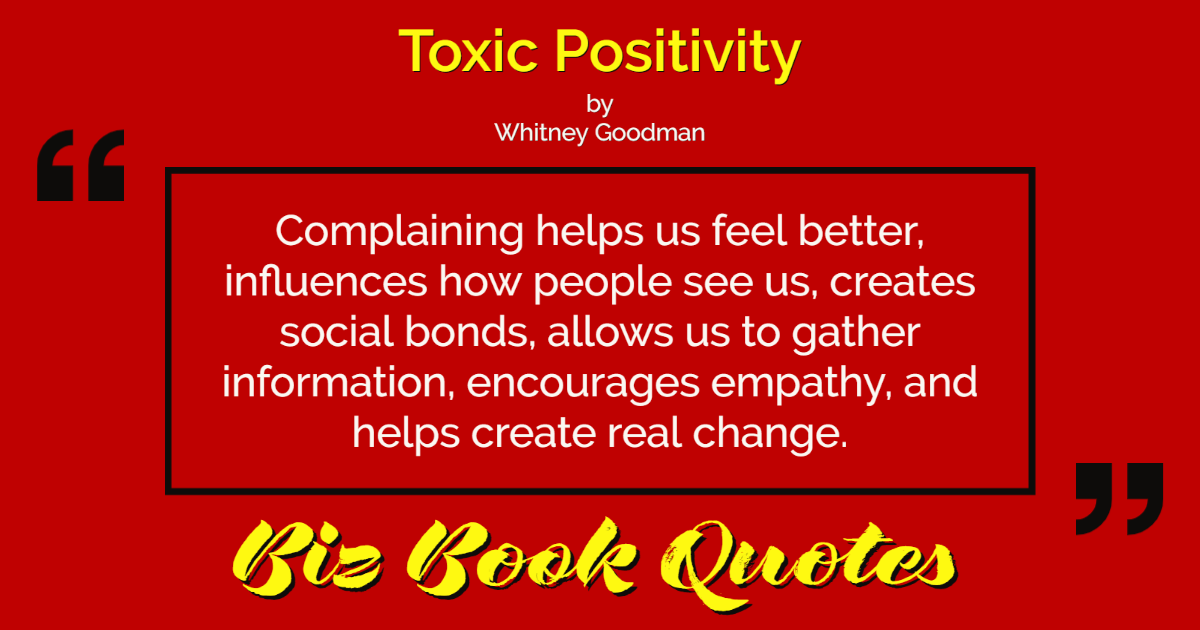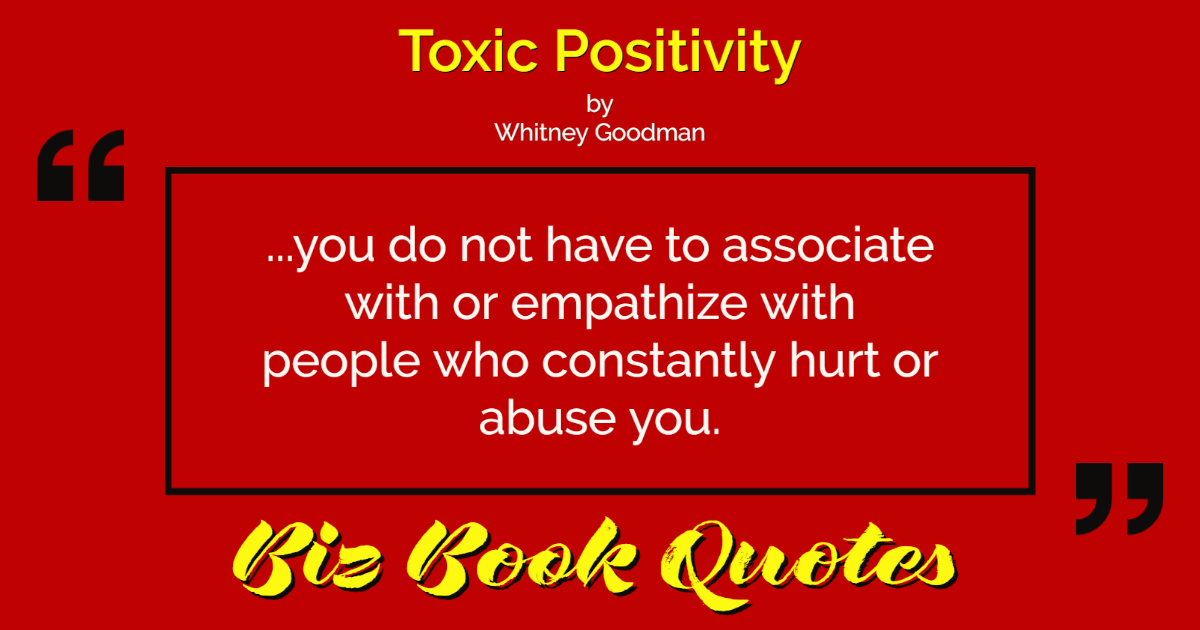 |
Walking in the shoes of another is social awareness at its best – and it’s not just for actors…
|
169 |
 |
When we show up authentically, rather than using toxic positivity, we’re validating that what the other person is going through is real, empathizing, and not sugarcoating or denying their experience.
|
17 |
 |
Genuine empathy requires that we listen, understand, and feel what is happening so that we can create a targeted solution.
|
54 |
 |
Complaining helps us feel better, influences how people see us, creates social bonds, allows us to gather information, encourages empathy, and helps create real change.
|
176 |
 |
Curiosity opens the door to understanding, validation, and empathy.
|
200 |
 |
Empathy is making space for the feelings, understanding them, and allowing the feelings to exist.
|
202 |
 |
If you lead with curiosity and seek understanding, the validation and empathy will flow naturally.
|
204 |
 |
Being an effective support person really comes down to listening, seeking understanding, validation, empathy, and strong boundaries with yourself and others.
|
209 |
 |
…you do not have to associate with or empathize with people who constantly hurt or abuse you.
|
224 |
 |
We are wired for empathy, but only toward those who we believe are behaving well.
|
236 |